It is not at all uncommon for people to be skeptical of a low-carb diet in the beginning, especially since high-carb, low-fat advice has been so prevalent for decades.
We don't want any unsubstantiated fears to get in the way of people reaping the benefits of a low-carb diet. On this page you can learn why many of these controversies are based on misunderstandings or incomplete knowledge - those are nothing to worry about.
However, our goal of making low carb simple also requires us to be be very upfront and honest about potential problems and how to handle them. Some problems can and do occur on low carb, and it can be helpful to know what they are and what can be done about them.
Here are the most common controversies about low carb, and what the currently best available scientific evidence can tell us about them.
1. Will saturated fat clog my arteries and give me a heart attack?
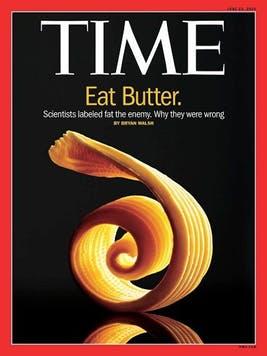
First of all, heart disease doesn't work the same way a clogged sink does! There are many potential contributing factors to the development of heart disease, including genetics, inflammation, and other health conditions, such as diabetes. How diet interacts with these other factors can vary greatly from one individual to another.
In terms of scientific evidence, links between saturated fat and heart disease are weak and inconsistent. Although other reviews reach different conclusions, some reviews of current science indicate there's no connection between saturated fat and heart disease. The weakness of the evidence against saturated fat has also been recognized in many high-quality newspapers.
Because the evidence is so weak and because individual response to dietary fats varies significantly, population-wide recommendations to avoid saturated fat appear to have been a mistake.
Fortunately, during the last several years more and more experts and organizations have realized that natural saturated fats - despite their reputation - appear to be neutral from a health perspective.
It's natural to eat saturated fats, as they are found in natural foods that we have eaten throughout evolution. This includes human breast milk, and the multiple foods that sustained our ancestors as adults.
Don't fear fat. Updated experts don't.
A user guide to saturated fat
2. Does a low-carb diet cause high cholesterol?
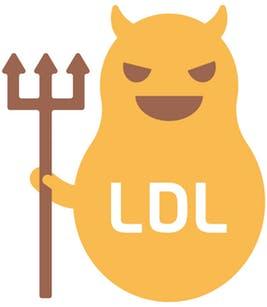
Low-carb diets tend to improve the cholesterol profile by increasing levels of HDL ("good") cholesterol, and decreasing levels of potentially harmful triglycerides. They may also improve the size profile of the LDL.
These appear to be beneficial changes that are associated with decreased insulin resistance and improved health.
Regarding LDL ("bad") cholesterol, most people experience no significant changes on low carb. However, in some people, LDL levels decrease or (more often) increase somewhat.
For a small minority of people however, cholesterol may go up abnormally high on a low-carb, high-fat diet. In those situations it could be worth adapting the diet to normalize the LDL cholesterol levels. Depending on your overall risk profile, you may want to work closely with your doctor to monitor for any evidence of cardiovascular disease.
Controversy exists about the absolute risk of elevated LDL in all people, as some observational studies show that higher LDL levels in the elderly are associated with living longer. While this does not prove cause and effect, it raises the question if LDL is a concern for everyone.
Taken together, studies show that low-carb diets on average improve risk factors for heart disease for the majority of people, including cholesterol.
The bottom line: Low-carb and high-fat diets on average improve the cholesterol profile and reduce most risk factors for heart disease. The effect of this has been demonstrated in a 2010 study that showed a reduction in atherosclerosis after two years on a low-carb, high-fat diet.
Low carb and cholesterol - the full guide
4. Is low carb bad for the environment?
No. It's a common misunderstanding that a low-carb diet requires eating a lot of protein, including meat, making it bad for the environment. This is simply not true.
A low-carb diet is supposed to contain more fat, not more protein. This is why it's often called an LCHF diet (low-carb, high-fat).
The amount of protein should stay moderate - about the same as on other diets. So there's no need to eat more meat just because you're on a low-carb diet. In fact it's very possible to even eat a vegetarian low-carb diet, should you want to.
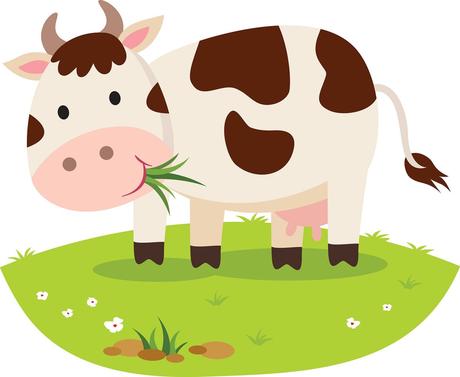
Furthermore, the impact of meat production on the environment depends on many factors. Do you buy locally raised, grass fed or pasture raised meat or poultry? If so, these can actually be raised in a manner that is environmentally friendly! They may potentially reduce the pesticide burden and nutrient depletion of soils, as well as allowing for more carbon dioxide to be stored in the ground.
The environmental benefit of having carb-rich monocultures such as soy, sugar and corn is also overstated. These pesticide-heavy crops reduce biodiversity and contribute to pollution to a much greater extent than, let's say, a biodynamic cow farm.
Finally, a low-carb diet often results in people eating less food, as it's so satiating. After significant weight loss people need even less food. Needing less food, and needing to eat less often, is of course good for the environment.
Bottom line: A low-carb diet should only be moderate in protein - e.g. meat - and thus it's no different for the environment than most diets. If you still choose to eat more meat than usual, the impact on the environment depends a lot on how the animals were raised.
Watch one of the smartest men in the world explain the real problem for the environment (Hint: it's fossil fuels)
5. Can you get nutrient deficiencies on low carb?
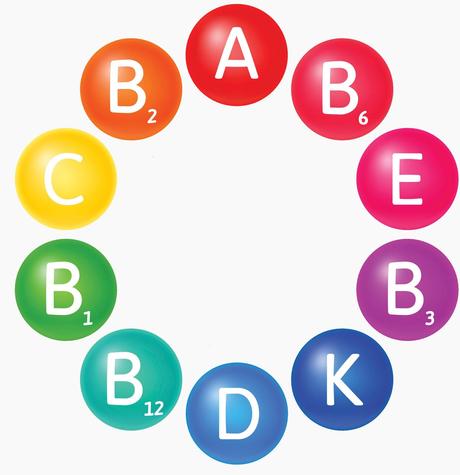
Probably the opposite is more often true. The foods consumed on a low-carb diet are highly nutritious. For example, eggs (a staple for many people on low carb) may provide the most complete nutrition of any food on the planet.
Consider that a complete chicken can be formed from the nutrients inside the egg. There's no way for the chicken to pop out and get some vitamins and minerals while growing in the egg; everything has to be there. And by eating an egg, we humans get all those nutrients.
Meat, fish and vegetables are also highly nutritious foods. And many people eating low carb tend to replace nutrient-poor pasta, rice and potatoes with more nutrient-rich vegetables.
Studies show that a low-carb diet can be nutritionally complete.
Compared to the more complete nutrition of a low-carb diet, refined flour is more or less devoid of any nutrition whatsoever apart from pure starch. Usually it's legally required to add vitamins to flour, so that people who eat a lot of it do not get vitamin deficiencies.
On top of that problem, grains like wheat are high in phytic acid that can reduce absorption of many minerals.
Another concern with low carb diets is the lack of fruit, often thought to be necessary for proper nutrition. This is a sad misunderstanding. Apart from vitamin C, there are very few nutrients in most modern fruit. These days, they are modified to be large and very sweet. Fruit is basically candy from nature, and should probably be eaten in moderation. Juice is even worse, given the concentrated sugar and lack of fiber to help slow the absorption.
Modern fast food and junk food also contain a lot of calories and not much nutrition. And low-fat products are low in essential fat-soluble vitamins, which are found in full-fat versions of yogurt, cheese and other whole foods.
Bottom line: Switching from a standard Western diet to a low-carb diet based on real foods is likely to significantly increase the amount of vitamins and minerals you get from your diet.
6. Can low carb damage your thyroid?
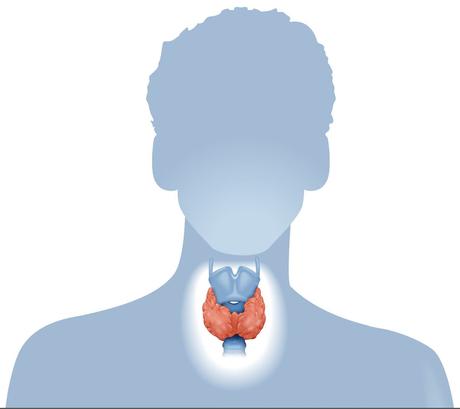
Not likely. If you eat a well-formulated low-carb diet, meaning you replace carbs by eating more healthy fat, it's very unlikely it will affect your thyroid negatively.
Long-term starvation or calorie restriction diets can lead to hypothyroidism (an underactive thyroid). But you won't be starving on low carb as long as you eat enough fat to feel satisfied.
In fact, some people who lose significant amounts of weight on low carb may end up needing less thyroid medication, and a few individuals may even be able to stop taking it completely. This may just be an effect of a smaller body needing less thyroid hormone. There isn't any research showing that restricting carbs itself can improve thyroid function.
This means that if you have hypothyroidism and supplement with thyroid hormone you can start a low-carb diet like anybody, and continue to do regular checkups as usual. If you lose a lot of weight it may be wise to do an extra check of your thyroid hormones once in a while, e.g. every time you've lost 30 pounds (15 kilos). It's not impossible that your dose may need to be adjusted.
Bottom line: Eat enough to feel satisfied, and your thyroid will be fine.
Watch doctors explain why low carb is fine for the thyroid
7. Can low carb damage your kidneys?
Highly unlikely. Many people still believe that a low-carb diet necessarily is very high in protein, that could put a strain on the kidneys. This is a myth based on two misunderstandings.
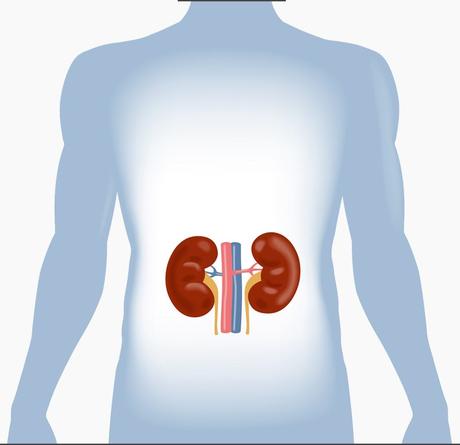
First, a well-formulated low-carb diet is high in fat, not protein. The amount of protein - like meat - should be moderate, just like in most diets. There's no benefit of eating excessive amounts of protein. It can even be detrimental on a low-carb diet, as excess protein can be converted to glucose, just like most dietary carbohydrates.
As a low-carb diet shouldn't be very high in protein, the whole "problem" behind this controversy simply does not exist.
Secondly, people with normal kidney function can handle high amounts of protein without any problem for the kidneys.
Even if people choose to eat excessive protein, this will only be a problem if the kidneys are already severely damaged. An example of this would be end-stage kidney disease that is close to requiring dialysis. Basically, if you have severe kidney disease and you've been told to limit protein, you should of course do so. But that would still make it possible for you to successfully eat a low-carb, high-fat diet.
To summarize: For people without kidney disease there's no reason to worry about the effect of excessive protein on your kidney health. And, most importantly, there's no need for anyone to eat excessive protein on a low-carb diet in the first place.
Bottom line: A low-carb diet is fine for your kidneys.
In fact, by lowering elevated blood sugars a low-carb diet may actually protect the kidneys from one of the most common causes of damage. Especially for people with diabetes, low carb might help protect their kidneys, by helping control their blood sugar levels.
What you need to know about a low-carb diet and your kidneys
Watch doctors explain how low carb affects your kidneys
How to reverse your type 2 diabetes
8. Can low carb make you depressed?

Not likely. But during the first week, or two, of a low-carb diet, it's common to experience symptoms similar to those of depression (such as lethargy, tiredness, irritability, brain fog).
These problems usually disappear within a few days or a week. They can often be avoided for the most part by getting enough fluid and salt - for example a cup of bouillon 1-2 times a day.
Long term, a low-carb diet often has the opposite effect. Getting into ketosis can make some people feel very energetic and might increase mental performance and endurance. People sometimes mention the "mental clarity" they feel.
Studies of the mental state on low-carb diets generally, and on average, show either no clear change or a slight improvement, compared to before starting the diet. Note that studies show the average result for a group of people. A few individuals may feel worse, while others feel better.
One reason that some people may feel depressed is if they have an addiction to reward from high-carb, sweet foods. Removing such foods when people are addicted to them may result in temporary feelings of loss and sadness, similar to symptoms of a depression. It may be similar to the effect of withdrawing from nicotine or alcohol when addicted to these substances.
Fortunately, after early withdrawal symptoms have passed, getting free of an addiction is incredibly liberating and enables people to lead fuller and happier lives. So it can definitely be worth the struggle.
Finally, to make a low-carb diet feel great long term requires tasty food and a simple and enjoyable lifestyle. Feel free to use our resources to speed up the process.
Watch doctors explain why low carb often have positive results on the mood Watch our video course about sugar and food addiction Check out awesome low-carb recipes Make low carb simpler using our low-carb living guides9. Is low carb bad for exercise?

During the first couple of weeks when you're switching from a diet rich in carbs to a low-carb diet, your capacity in the gym will most likely go down. This is due to the low-carb flu, but it will likely mostly pass within one or two weeks.
After a few weeks of adaptation, people often report feeling at least as good as before when exercising, especially if they make sure to get enough fluids and salt.
Furthermore, for endurance athletes, there are many benefits to being fat-adapted and eating LCHF. For instance, this is demonstrated by the fact that the two top performers in Tour de France 2016 were on some form of low-carb diet.
Similar benefits have been seen for powerlifting and weightlifting athletes. Additionally, following a ketogenic diet might improve body composition when combined with resistance training.
However, more carbs are probably needed for non-endurance sports such as sprinting etc. In these cases, it might be a good idea to take in some more carbs on the day when you need to perform, such as during a game day.
Watch doctors explain how low carb can be good for exercise Learn more about how to increase physical performance on low carb10. Is low carb bad for your gut bacteria?
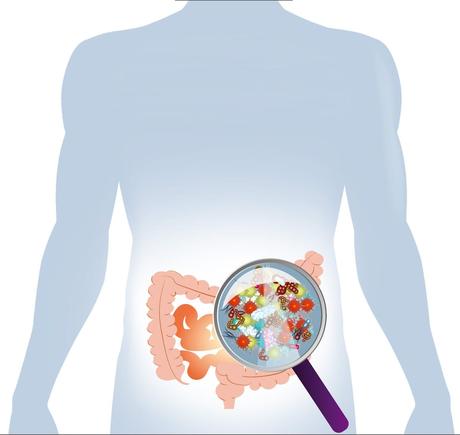
Probably not. There is currently a lot of research being conducted on gut bacteria. The main problem with much of the reporting on gut bacteria and diet is confusing statistical correlations with causality, i.e. taking weak clues and mistakenly calling it proof.
Not much, if anything, can yet be said about the health effects of changes to the microbiome on a low-carb diet, only that it changes. However, many people report that they have less gastrointestinal stress and bloating after starting a low-carb diet. Additionally, the ketogenic diet may lead to beneficial changes in the microbiome in people with certain health conditions, such as multiple sclerosis and epilepsy.
The number one thing to do for your gut bacteria is to never use antibiotics unless you have to. And even then less is often better.
Watch a presentation on the possible benefits of slow carbs to feed the microbiome
11. Can you get constipated on low carb?
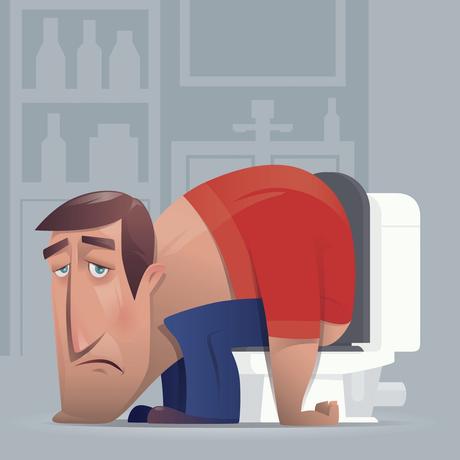
Yes. Constipation is a possible side effect that can occur, especially during the first time on a low-carb diet, as your digestive system may need time to adapt.
It can usually be alleviated by either drinking more water and increasing salt intake, taking in more fiber or, if necessary, adding Milk of Magnesia.
Note that just because some people have a bowel movement less often does not mean they are constipated. Many people report decreased stool frequency on low carb, but as long as they don't feel bloated or abdominal pain, there is no concern with this.
If you suffer problems with constipation when starting low carb, it is usually temporary.
Learn more about preventing or curing constipation on low carb
12. Can you get osteoporosis on low carb?
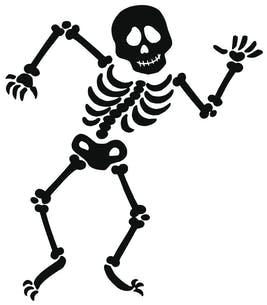
No. There is a lingering idea that eating low carb could result in osteoporosis, due to making the blood "acidic" and leaching minerals from the bones. But this theory has been disproven in several ways.
For example, under normal circumstances the pH of the blood does not change depending on what you eat. Blood pH is tightly controlled within a very narrow range - otherwise, we'd die.
This theory is usually based on the idea that a diet rich in protein would make the blood acidic, making it bad for the bones. This is the opposite of what studies show - people who eat more protein tend to have stronger bones. Looking at all available science, higher protein intake hasn't been shown to harm bone health and may potentially even help protect against bone loss in the lower spine.
Finally, repeated studies show no effect on bone density in people eating low carb, even after several years.
Low carb does not affect the bones.
Learn more about low carb, blood pH and bone strength
13. Does low carb cause hair loss?
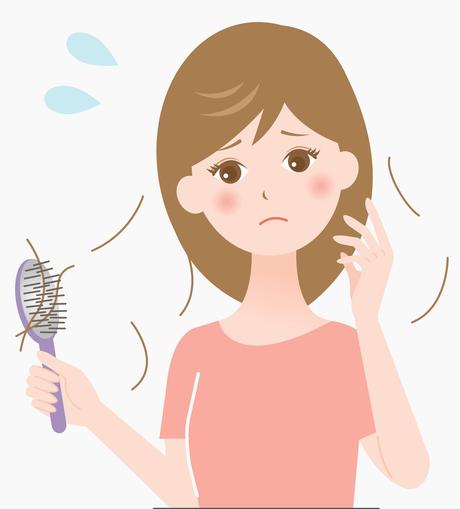
Occasionally. Temporary hair thinning can occur for many different reasons, including any big dietary change. This is especially common when severely restricting calories (e.g. starvation diets, meal replacements) but it can also occasionally happen on a low-carb diet.
This kind of temporary thinning of the hair typically occurs 3-6 months after a big dietary change or any other kind of stressful experience for the body. After a period of losing more hair than usual, the lost hairs then grow out again, so that the hair ends up as thick as before.
It's safe to say that the large majority of people who try a low-carb diet never experience this. Furthermore, it's likely possible to minimize the risk by not doing a low-carb and low-fat diet at the same time, i.e. by avoiding starvation. Make sure to eat enough fat to feel satisfied, and a moderate amount of protein.
Learn more about low carb & temporary hair loss Learn how to eat more fat14. Does low carb cause ketoacidosis?
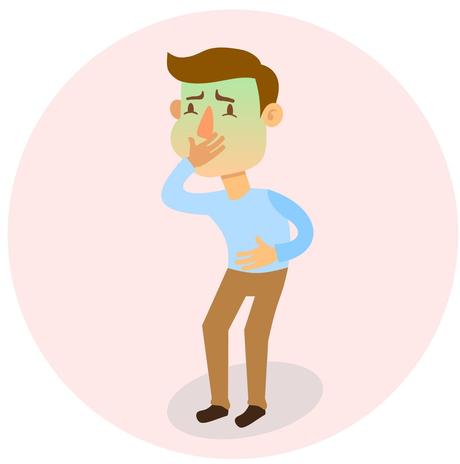
Ketoacidosis (also known as diabetic ketoacidosis, or DKA) is a rare and dangerous medical condition that mainly occurs in people with type 1 diabetes if they don't take insulin, especially if they are ill.
People with type 2 diabetes who take certain medications (eg SGLT2 inhibitors) can also develop DKA, although this is relatively rare. However, eating a ketogenic diet while taking these medications might potentially increase the risk of DKA.
Ketosis (sometimes referred to as nutritional ketosis), on the other hand, is a 100% natural and safe state for most people, under full control by the body.
It can be caused by a low-carb diet or by a brief period of fasting.
Under normal circumstances, a strict low-carb diet never results in ketoacidosis. It results in ketosis, a natural and safe state that enables the body to quickly burn large amounts of fat.
Learn more about ketosis and ketoacidosis
15. Do you get a shortage of whole grains on low carb?
Do you need to eat whole grains - like bread or pasta - to stay healthy? While the fiber in whole grains may slow down the absorption of glucose and lower the glycemic index (possibly a good thing), it's less clear what the benefit is on a low-carb diet. There's likely much less benefit of slowing down the absorption of carbs if you don't eat many carbs.
Furthermore, there no high-quality science proving a need to eat whole grains to prevent disease or prolong life. The most recent Cochrane review of high-quality nutrition science found no evidence for that idea.
There's a widely-held belief that people need to eat grains to get specific nutrients. However, other foods that are lower in carbs are often more nutritious.
Finally, there's an idea that the microbiome in our guts may benefit from the fiber in whole grains. This is still a controversial topic with a lack of high-quality science. However, there are many other sources of fiber that are far lower in carbs than whole grains.
Learn more about whole grains and health16. Is salt dangerous for your health?
A low-carb diet is not necessarily higher in salt than other diets. But it's often recommended to increase salt intake when starting, to reduce the risk of side effects. So is salt dangerous?
Actually, the science for this common piece of health advice is quite weak:
Salt restriction lacks credible evidence
17. Is red meat dangerous?
A low-carb diet is not necessarily higher in red meat than other diets. It's even possible to eat a vegetarian low-carb diet. However, many people eat a low-carb diet with red meat. Here's our guide to what the scientific evidence tells us about it:
Guide to red meat - is it healthy?
Expert Q&A
For more answers to common low-carb fears from some of the leading low-carb doctors in the world, then check out our Q&A video series:
More questions & answers about low carb

